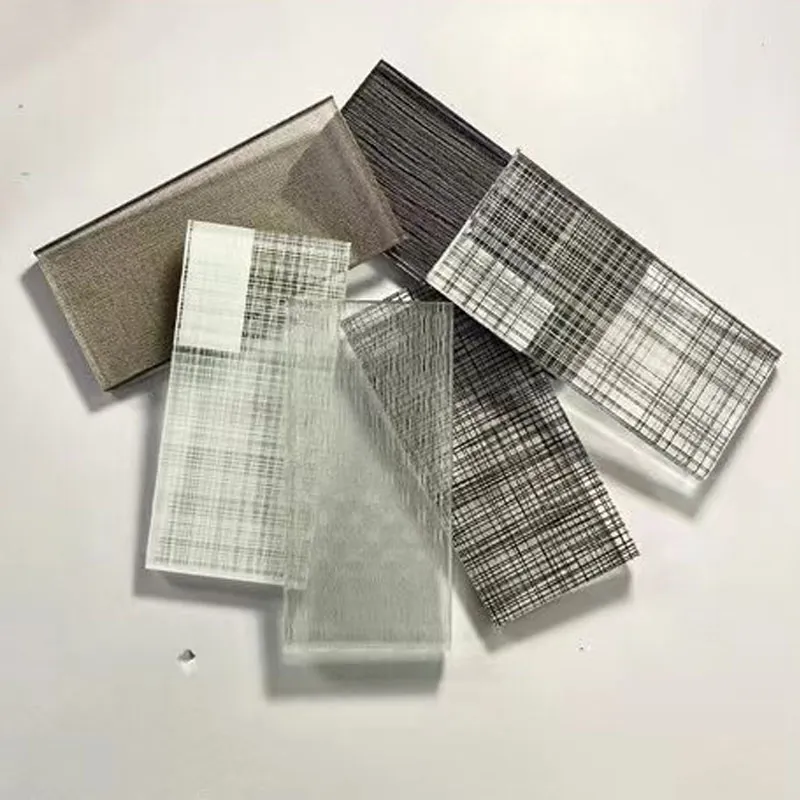The float glass manufacturing process stands as a testament to the seamless integration of innovation and engineering excellence. Float glass, omnipresent in architectural and automotive applications, is produced through a method that has undergone continuous refinement to ensure quality and sustainability. This process not only exemplifies technical prowess but also underscores a commitment to advancing the built environment with reliable materials.

The float glass manufacturing process begins with the careful selection of raw materials, primarily silica sand, soda ash, dolomite, limestone, and other minor ingredients. These materials are meticulously weighed and mixed into a batch, which is then fed into a furnace. The furnace operates at extreme temperatures exceeding 1,700 degrees Celsius, where the batch is melted to form molten glass.
One of the unique aspects of the float glass process is the use of a molten tin bath. The molten glass is carefully poured onto the surface of the molten tin, where it spreads out and forms a perfect sheet. This step is crucial as it allows the glass to achieve a uniform thickness and incredibly smooth surfaces, a hallmark of float glass that distinguishes it from other types of glass. The engineering expertise required to maintain optimal temperatures and precise control of glass and tin flow demonstrates both technical proficiency and industry know-how.

As the glass sheet progresses along the tin bath, it enters the annealing lehr. This critical phase ensures that the glass cools gradually to reduce internal stresses, which can diminish the glass's structural integrity if not properly addressed. The ability to control the cooling rate of the glass requires in-depth knowledge of material science, showcasing expert authority in manufacturing practices. Annealing transforms the glass into a robust and durable material, ready for cutting, coating, or further fabrication into specialized products such as insulated glass units or laminated safety glass.
float glass manufacturing
Product consistency and quality are paramount in float glass production. Leading manufacturers employ advanced quality control measures, including online inspections using high-tech scanning systems to detect surface imperfections and verify dimensional accuracy. These technologies reflect a commitment to trustworthiness, as customers rely on manufacturers to deliver glass that meets stringent specifications and safety standards. Being transparent and proactive about quality assurance helps build a reputation for reliability and excellence in the market.
Sustainability is becoming an increasingly significant consideration in the float glass industry. The industry is investing in more energy-efficient furnaces and looking to reduce its carbon footprint through recycling initiatives. By emphasizing eco-friendly practices, manufacturers illustrate responsibility towards environmental stewardship, enhancing trustworthiness with consumers who are environmentally conscious.
Moreover, the ability to innovate with coatings and treatments such as Low-E or anti-reflective finishes adds a layer of technology-driven enhancement to the product. These advancements not only improve the performance of the glass, meeting energy-efficiency demands but also reinforce the manufacturer's expertise in adapting to modern building requirements.
In conclusion, the float glass manufacturing process is a blend of science, art, and dedication to quality improvement. By focusing on precision, efficiency, and sustainable practices, the float glass industry not only demonstrates supreme expertise and authority but also fosters enduring trust with architects, builders, and end-users who rely on this remarkable material to bring their visions to life. Through continuous innovation and a commitment to excellence, float glass manufacturers uphold their responsibility to the future of construction and design.
 Afrikaans
Afrikaans  Albanian
Albanian  Amharic
Amharic  Arabic
Arabic  Armenian
Armenian  Azerbaijani
Azerbaijani  Basque
Basque  Belarusian
Belarusian  Bengali
Bengali  Bosnian
Bosnian  Bulgarian
Bulgarian  Catalan
Catalan  Cebuano
Cebuano  Corsican
Corsican  Croatian
Croatian  Czech
Czech  Danish
Danish  Dutch
Dutch  English
English  Esperanto
Esperanto  Estonian
Estonian  Finnish
Finnish  French
French  Frisian
Frisian  Galician
Galician  Georgian
Georgian  German
German  Greek
Greek  Gujarati
Gujarati  Haitian Creole
Haitian Creole  hausa
hausa  hawaiian
hawaiian  Hebrew
Hebrew  Hindi
Hindi  Miao
Miao  Hungarian
Hungarian  Icelandic
Icelandic  igbo
igbo  Indonesian
Indonesian  irish
irish  Italian
Italian  Japanese
Japanese  Javanese
Javanese  Kannada
Kannada  kazakh
kazakh  Khmer
Khmer  Rwandese
Rwandese  Korean
Korean  Kurdish
Kurdish  Kyrgyz
Kyrgyz  Lao
Lao  Latin
Latin  Latvian
Latvian  Lithuanian
Lithuanian  Luxembourgish
Luxembourgish  Macedonian
Macedonian  Malgashi
Malgashi  Malay
Malay  Malayalam
Malayalam  Maltese
Maltese  Maori
Maori  Marathi
Marathi  Mongolian
Mongolian  Myanmar
Myanmar  Nepali
Nepali  Norwegian
Norwegian  Norwegian
Norwegian  Occitan
Occitan  Pashto
Pashto  Persian
Persian  Polish
Polish  Portuguese
Portuguese  Punjabi
Punjabi  Romanian
Romanian  Russian
Russian  Samoan
Samoan  Scottish Gaelic
Scottish Gaelic  Serbian
Serbian  Sesotho
Sesotho  Shona
Shona  Sindhi
Sindhi  Sinhala
Sinhala  Slovak
Slovak  Slovenian
Slovenian  Somali
Somali  Spanish
Spanish  Sundanese
Sundanese  Swahili
Swahili  Swedish
Swedish  Tagalog
Tagalog  Tajik
Tajik  Tamil
Tamil  Tatar
Tatar  Telugu
Telugu  Thai
Thai  Turkish
Turkish  Turkmen
Turkmen  Ukrainian
Ukrainian  Urdu
Urdu  Uighur
Uighur  Uzbek
Uzbek  Vietnamese
Vietnamese  Welsh
Welsh  Bantu
Bantu  Yiddish
Yiddish  Yoruba
Yoruba  Zulu
Zulu 


